Global Experiences is widely known in the field of Education Abroad as the premier provider of International Internships and Career Readiness. Global Experiences has been recognized as an innovator in impactful programming due to its customized internship placement process and award-winning Strengths-Based Approach to Career Readiness.
All GE interns take the Clifton StrengthsFinder assessment and leverage their Top 5 Strengths during their internship with the help of GE advisors. The StrengthsFinder assessment is a personal development tool based on decades of research into human strengths. From this data, four distinct domains, or groups of Strengths, emerged.
According to the Clifton StrengthsFinder (and our first blog of our StengthsFinder series!), the 34 different Strength themes naturally cluster into these four domains: Relationship Building, Influencing, Executing, and Strategic Thinking. Today’s blog explains why it is helpful to see a bigger picture of the strengths vis a vis the four domains and will focus on relationship building domain and related strengths, or as it is affectionately known, the “glue stick” domain. You will understand the nickname soon enough!
Reflection Questions: What are your Top 5 Strengths?
Which one is your favorite or the one that you feel personifies you the best?
In keeping with the Strengths-based approach to personal development, there are a few things you do uniquely and exceptionally better than others. Likewise, others do things better than you. Naturally, you need to play your part on any team that you are on. Often, when someone receives their Top 5 Strengths results, they will have a majority (or sometimes all) of their strengths in one of the four domains. Inevitably, they will ask, “Is it bad?” or “Does this mean that I can’t do _____?”
Quite the contrary, understanding what you have and using them to your maximum advantage to achieve your goals and those of your team will set you up for greater success that stressing over a lack of equal distribution or lamenting the strengths that you “don’t have”. After all, if a strength theme doesn’t end up in your Top 5, it simply means that is not your most preferred natural talent.
Someone without the relationship building strength of Relator is still capable of having meaningful and fulfilling relationships, they just use other Strengths to do so. For example, our hope at Global Experiences, is that when our interns have a better understanding of the four domains it will heighten their awareness of their need to partner with those who have strong relationship building strengths when people and relationships are of primary concern.
To better understand and explain the four domains of strength, here is a brief rundown. This will help you see the strengths from a more bird’s eye view or general level, which helps you see the bigger picture in accomplishing your goals. Today’s blog will be diving into more detail about relationship building strengths, and subsequent pieces will cover the remaining three domains. You will be on your way to becoming a strengths expert after reading our full series on the Clifton StrengthsFinder assessment.
Task-Oriented vs. Relationship-Oriented Domains

To begin, individuals who possess Executing strengths enjoy and are talented at accomplishing tasks. They love to make lists of things to do and then cross those complete successes off of their list. When your talent themes are largely executing in nature, you are indeed highly task-oriented and are often concerned with practical things like budgets, systems, processes, rules, timelines, etc.
You can always be depended upon to follow through and get the job done. The strength themes in this domain are Achiever, Arranger, Belief, Consistency, Deliberative, Discipline, Focus, Responsibility, and Restorative. Those with a focus in Executing Strengths may enjoy Event Planning Internships, NGO Internships, or Accounting Internships. Stay tuned for additional detail on the Executing strengths!
The next task-oriented domain is Strategic Thinking. People whose strengths are mostly in the Strategic Thinking domain are concerned with data, concepts, facts, strategies and big picture dreams for the future. They enjoy engaging their mind, brainstorming and imagining new paradigms.
Others often consider them wise and seek out their counsel. Strategic thinking strengths include Analytical, Context, Futuristic, Ideation, Input, Intellection, Learner and Strategic. Those with a focus in Strategic Thinking may thrive in Architecture Internships, or Finance Internships.
The four domains can be seen as being divided into two additional categories: task-orientated versus relationship-oriented. As opposed to task-oriented Executors and Strategic Thinkers, the Influencing and Relationship Building domains are relationship-oriented. This doesn’t mean that completing tasks are unimportant for people who find most of their strengths in these domains. It simply means that building relationships is often the motivator for completing the tasks as they give meaning to the human connections they are primarily seeking.
Influencers are exceptionally talented at motivating others toward a particular direction. They are very effective persuaders, who are perceived by others as extroverts with a lot of energy. They make a strong, memorable impression, and they’re infectious passion is inspiring, compelling others to rally around a cause and take action.
Strengths in the influencing domain are statistically the rarest and include Activator, Command, Communication, Competition, Maximizer, Significance, Self-Assurance, and Woo. An Influencer may consider pursuing a Politics Internship, or a Law Internship.
There will be more on Executing, Influencing and Strategic Thinking strengths in our next blog post!
Relationship-Building Strengths

The domain at the forefront of this post is Relationship Building, or the “glue stick” strengths. Noted earlier, people who hold relationship building Strengths in the Top 5 excel at forming connections with others. They are adept at showing care and concern to others, often by openly demonstrating their emotions. If you are a relationship builder, people see you as someone who cares.
You send the message that human relationships matter above all else, and are careful to be authentic and genuine in your interactions with others. You encourage those who are feeling down, listen to those who are feeling unheard and ensure that no one feels left out. I’ve heard the strengths in this domain also called “Care Bear” strengths, and they include Adaptability, Connectedness, Developer, Empathy, Harmony, Includer, Individualization, Positivity, and Relator.
Reflection Questions: Which domain is most dominant for you? Least dominant? Are your colleagues aware of your talents and Strengths in your dominant domain?
People who work with Relationship Builders know that they are well aware of the needs of others and are highly sensitive to them. This makes them a joy to work with in a team as they create pathways for others to thrive. The strong relational connections they form with their teammates will bind the group together around the cause or task of the team, guiding and holding the team in place when things get challenging.
They provide the essential glue of group cohesion, which is why this domain is known for entailing “glue stick” strengths. Without the existence of these strengths on a team, the group is more like a amalgam of individual people. Relationship builders help to create a team which is greater than the sum of its parts. This is why many students interested in Human Resources Internships have any relationship-building strengths.
Reflection Questions: Have you ever been on a highly cohesive team? Who was/were the relationship builder(s) on your team? What strengths do you think they had?
Within this domain, a person with Positivity may work hard to minimize distractions and to keep the team's collective energy high in the face of unexpected challenges. On the other hand, a leader with Individualization might use a more targeted approach to getting people involved.
Or a leader with strong Developer may be a great mentor and guide as he pushes others toward bigger and better achievements. Let’s take a closer look at these “care bear” and “glue stick” relationship building strengths!
The Positivity Strength

Folks with Positivity are skilled at building relationships by attracting others to them and their teams with their upbeat, enthusiastic and joyful demeanor. People want them on their team and want to work with them.
They are the people at your organization who are always smiling, who compliment your outfit and enquire about your weekend plans. They are incredible cheerleaders when things are going so well and are often known for giving great pep talks. They certainly see the glass as proverbially half-full and will call the team’s attention to past successes and turned their gaze toward what good things are to come in the future.
One of my favorite examples of a Global Experiences intern who personified her Positivity Strength interned in a Public Relations firm in the media industry. During her internship in London, she was frequently assigned the task of contacting journalists and pitching stories about the release of a new product, platform or medium.
The majority of the journalists would turn her down immediately, sometimes hanging up on her, but this intern used her Positivity to not get dismayed and stay focused on the task. This made a positive impression on her fellow interns and supervisors, alike, helping her to forge some lasting professional relationships across the pond.
The Individualization Strength

The Individualization strength allows people to see past stereotypes and identify what makes each individual tick, be it their motivations, interests, and values. Those who possess individualization are attuned to what makes others unique and special because they instinctively observe and are genuinely interested in discovering and understanding people and all of their intricacies.
Individualization is helpful for building relationships because people like to be paid attention to and don’t like to be put into boxes. If you have this strength you see people as they come and meet them on their own terms, which makes them feel accepted. This, in turn, enables a leader to essentially optimize someone’s engagement and performance.
Focusing on a person’s individualized approach to work also enables a manager to put the right people in the right places within an organization, ensuring that talents are being utilized to their fullest extent. “Individualizers” make great recruiters, chiefs of staff, salespersons consultants, and teachers because they customize their approach on the needs of their stakeholders, not on a rigid approach.
A great example of a Global Experiences NGO intern putting her Individualization strength in action occurred at a London-based social services organization for people with mental illness. She reported that she used Individualization in intake sessions when gathering information on clients’ cases.
She, of course, was able to complete all of the necessary intake form sections with the pertinent information, but also took the time to ask tailored follow up questions to really glean the client’s story. By doing so, the intern make her clients feel heard and accepted, which effectively began a great rapport necessary for successful therapy.
The Developer Strength

A Developer sees a person and their life as a blank slate full of limitless possibilities. They see nothing but potential in others and enjoy helping people grow and reach a level of self-actualization, a better version of who they currently are. Slightly less than 16% of people have the Developer talent in their Top 5 themes. This is a theme that is more common in women, coming in at #8, than men (#25).
Developers are genuine in their interest in people’s progress and growth making them often incredible coaches and teachers due to their natural mentorship ability. Developers look for an opportunity to challenge someone and will try to learn where to challenge and cultivate, recognize others’ abilities, and ask what they can provide to help the person to succeed.
On the Global Experiences team, we have a wonderful Developer, who also happens to be a Florence international internship program alum. She uses her Developer strength to encourage everyone on the team who is tasked with writing blogs even though this task might not be their forte.
Seeing the areas for improvement, she offers resources and advice. She is great at giving positive feedback as well, so that you always feel like you are on the right track to writing an excellent piece even if you confidence in waning. Developers really do bring out the best in others!
Use your Domain to Succeed!
In sum, looking at the four domains of strengths can help us see them from another angle and make it easier to build well-rounded teams, which are proven to deliver a higher level of performance. Personally, understanding our dominant domain can help us seek out tasks we would enjoy and excel at as well as be better at identifying our valuable contributions to a team and thus able to communicate them to others.
When we know what we offer, as well as what we don’t offer, we can find more complementary partners. And, always, having this greater self-awareness helps us regulate our behaviors accordingly within a team, and opens up new possibilities for interpersonal growth.
Curious about utilizing your strengths to succeed in a virtual internship experience? Check out our GE Virtuoso page!





















